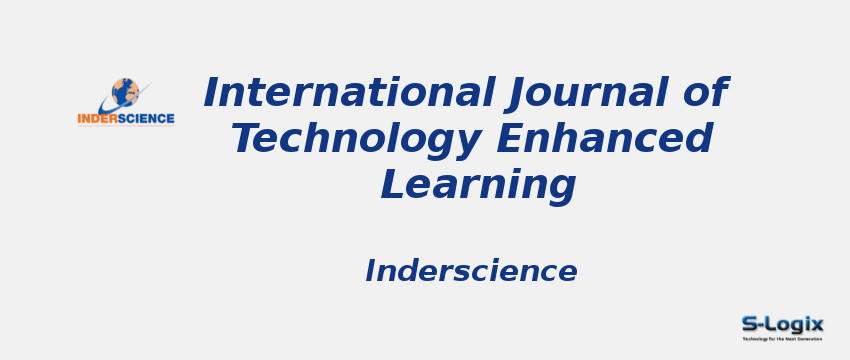IJTEL focuses on promoting and disseminating research in e-learning and distance education worldwide. It encourages multidisciplinary research in online learning/teaching, technology-enabled design and deployment of academic programmes, teaching projects and initiatives, emerging technologies and applications, blended online and face-to-face teaching modes, materials and pedagogy. IJTEL aims: to provide holistic, multidisciplinary discussion on technology-enhanced learning research; to promote international collaboration and the exchange of ideas/know-how on technology-enhanced learning; and to investigate strategies on how technology-enhanced learning can promote sustainable development.
Journal Home: Journal Homepage
Editor-in-Chief: Dr. Daphne Halkias
scope: Technology enhanced learning (TEL) domain Key issues: effective strategies, learning models/theories ICT deployment in education: policy, integration, extensibility, interoperability Pedagogical theories/models, constructivist approaches Collaborative/context aware/personalised approaches Communities of learners Web 2.0, semantic web Adaptive/personalised hypermedia, metadata/content standards Free/open source software, ubiquitous/pervasive/grid technologies
Print ISSN: 1753-5255
Electronic ISSN: 1753-5263
Abstracting and Indexing: Scopus
Imapct Factor :
Subject Area and Category: Computer Science Applications,Social Sciences,Education,E-learning
Publication Frequency:
H Index: 23
Q1:
Q2:
Q3: E-learning
Q4:
Cite Score: 2.7
SNIP: 0.768
Journal Rank(SJR): 0.477
Guidelines for Authors: International Journal of Technology Enhanced Learning Author Guidelines
Paper Submissions: Paper Submissions in International Journal of Technology Enhanced Learning
Publisher: Inderscience Publishers
Country: Switzerland
